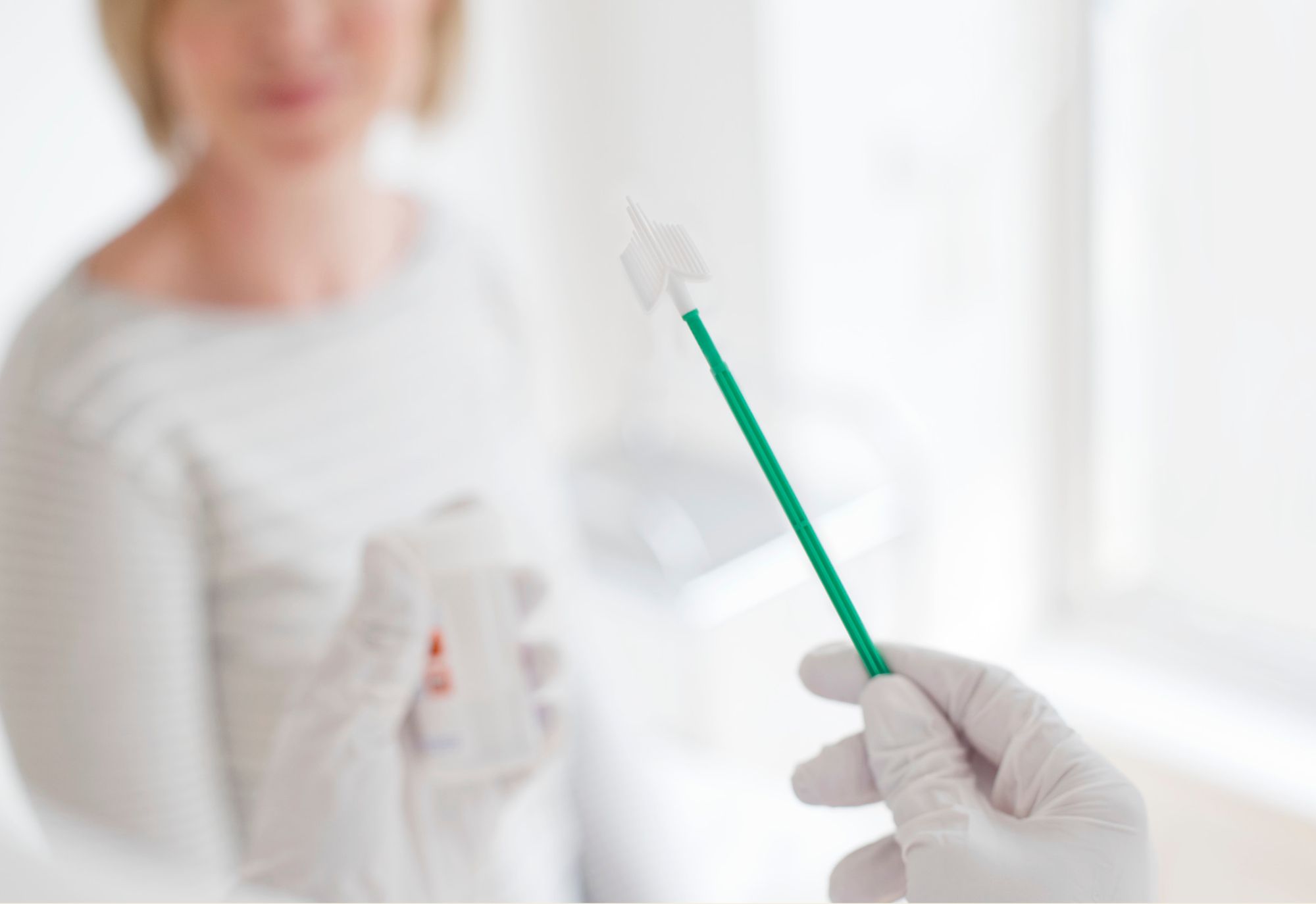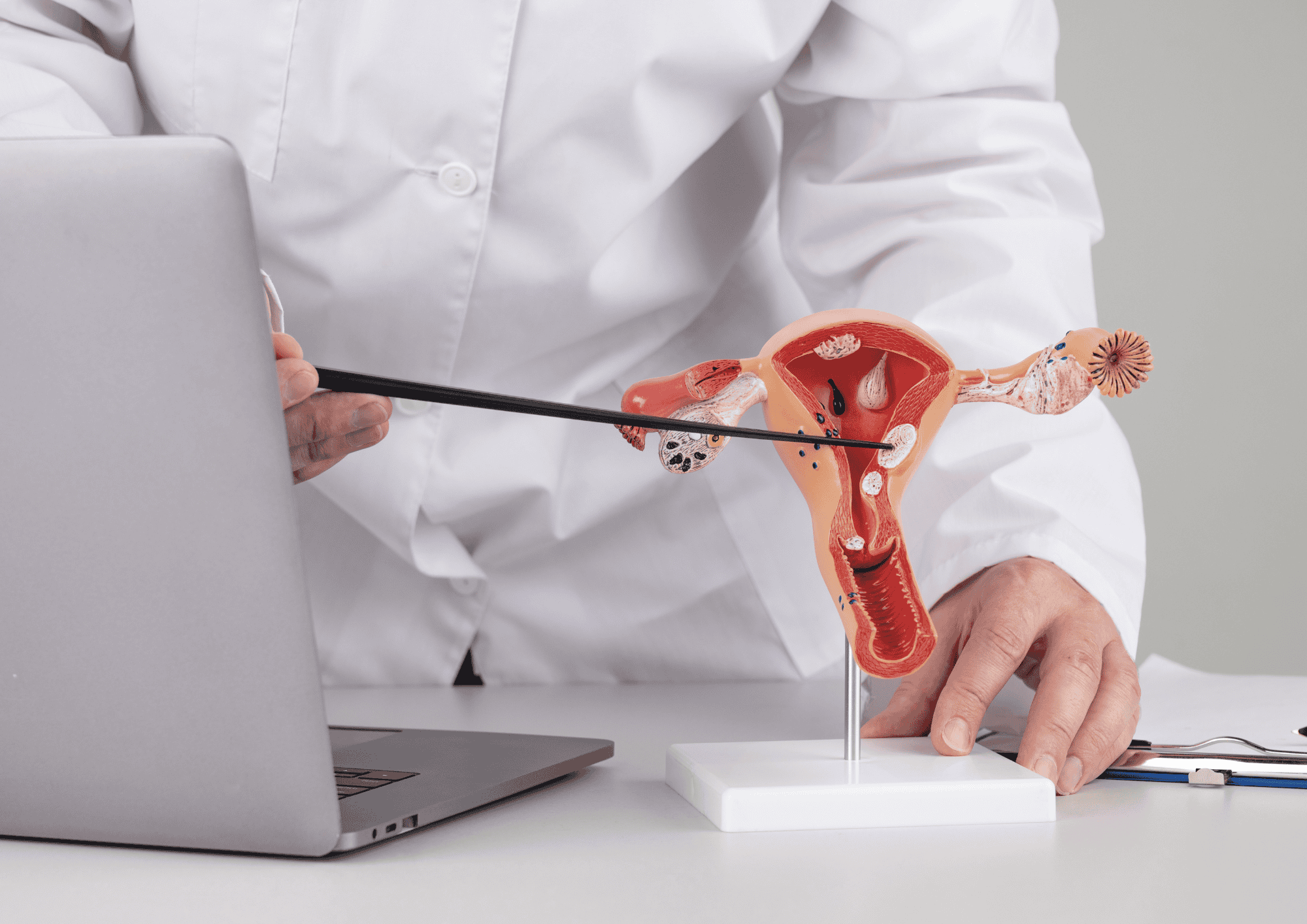A gynecological examination is a crucial component of comprehensive healthcare for women. During the exam, the doctor checks the external genital organs and, using a speculum and a bimanual (two-finger) examination, assesses the internal reproductive organs. In some cases, a rectovaginal exam may also be performed to evaluate the posterior pelvic area better.
A gynecological examination helps diagnose various conditions, such as:
- abnormal bleeding or discharge,
- pelvic pain,
- sexually transmitted infections (STIs),
- benign and malignant tumors or cysts,
- anatomical abnormalities
Should I see a gynecologist if I have no symptoms?
Preventive check-ups are essential for all women and may include:
- Regular Pap tests as recommended by your doctor, depending on your age, medical history, and previous results. For young women (up to 24 years), the test is usually performed once a year if previous results were expected.
- Early detection of vulvar or vaginal cancer before symptoms appear.
- Identification of anatomical abnormalities or foreign bodies.
- An opportunity to ask questions about reproductive health that might not otherwise be discussed.
- A check-up also allows your gynecologist to notice changes you may not recognize as abnormal — for example, pigmented lesions on the vulva or unusual vaginal discharge.
Women aged 25 and older with normal Pap test results are generally advised to undergo preventive examinations every three years, in line with the National Cervical Cancer Screening Program guidelines.
Learn more about the Pap test.

When should you always see a gynecologist?
You should contact your gynecologist if you experience:
- abnormal bleeding (irregular periods, bleeding after intercourse, or after menopause),
- pelvic pain (painful periods, pain during intercourse, pain during bowel movements),
- unusual vaginal discharge,
- itching,
- lumps, visible lesions, or ulcers
- infertility,
- injuries,
- presence of foreign bodies,
- concerns about abnormal anatomy or development,
- neurological issues,
- incontinence, prolapse, or other pelvic floor problems,
- new or unexplained gastrointestinal symptoms (abdominal pain, bloating, appetite changes).
During pregnancy, a gynecological exam is also performed in cases of bleeding, cramping, contractions, amniotic fluid leakage, or for labor monitoring.

What to expect during a gynecological exam?
The examination is usually performed while the patient lies on the exam table with leg supports. A protective sheet is placed under the hips, and the lower body is covered with a drape to maintain privacy and comfort. At IMC Priora, examinations are conducted by Dr. Dimitrije Milojković, a specialist in gynecology and obstetrics, renowned for his professional, gentle, and individualized approach to each patient.
The doctor uses gloves, a speculum, a light source, and lubricant to make the exam more comfortable. If any abnormal discharge or signs of infection are noticed, samples can be taken immediately for further testing.
Speculums come in different sizes, and your doctor will always choose the one that ensures maximum comfort and fit. The exam is performed carefully and slowly to minimize discomfort.
Duration: Most gynecological examinations take about 10–15 minutes. If additional samples or tests are needed, it may take a bit longer.
Although the procedure may sound intimidating, it’s essential to know that:
- The doctor or nurse will explain every step before it’s done,
- You can ask for a pause at any time,
- Everything is performed with respect and discretion.
- The goal of the examination is your health and well-being, not discomfort.
Most women feel only mild discomfort and rarely any pain. Good communication and relaxing the pelvic muscles can significantly reduce unease.

Possible complications
Complications during gynecological examinations are rare. The most important factor is building trust and maintaining open communication with your gynecologist.
- In women with atrophic vaginitis, the exam may cause pain or minor mucosal tearing; using a lubricant and a smaller speculum is recommended.
- In women with chronic pelvic pain, the exam may temporarily increase symptoms.
- For patients with a history of sexual trauma, the exam can trigger anxiety or post-traumatic stress. In such cases, it is essential to:
- obtain consent before and during the examination,
- offer adjustments to the procedure,
- provide psychological support, or, if needed, mild anxiolytics.
Take care of your health in time — book your appointment with Dr. Dimitrije Milojković. Call us at +385 31 227 400 or send an inquiry to [email protected]. You can find the prices of all our services in the price list.
